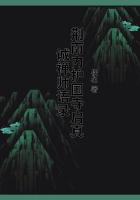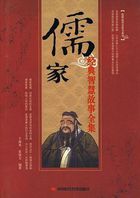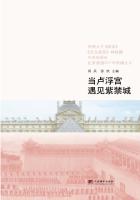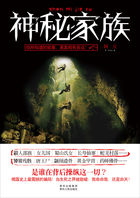And with that we come to the general changes in the social geography of Russia which are threatened if the processes now at work continue unchecked.The relations between town and village are the fundamental problem of the revolution.Town and countryside are in sharp contradiction daily intensified by the inability of the towns to supply the country's needs.The town may be considered as a single productive organism, with feelers stretching into the country, and actual outposts there in the form of agricultural enterprises taking their directives from the centre and working as definite parts of the State organism.All round this town organism, in all its interstices, it too, with its feelers in the form of "food speculators," is the anarchic chaos of the country, consisting of amyriad independent units, regulated by no plan, without a brain centre of any kind.Either the organized town will hold its own against and gradually dominate and systematize the country chaos, or that chaos little by little will engulf the town organism.Every workman who leaves the town automatically places himself on the side of the country in that struggle.And when a town like Moscow loses a third of its working population in a year, it is impossible not to see that, so far, the struggle is going in favor of that huge chaotic, unconscious but immensely powerful countryside.There is even a danger that the town may become divided against itself.Just as scarcity of food leads to food speculation, so the shortage of labor is making possible a sort of speculation in labor.The urgent need of labor has led to a resurrection of the methods of the direct recruiting of workmen in the villages by the agents of particular factories, who by exceptional terms succeed in getting workmen where the Government organs fail.And, of course, this recruiting is not confined to the villages.Those enterprises which are situated in the corn districts are naturally able to offer better conditions, for the sake of which workmen are ready to leave their jobs and skilled workmen to do unskilled work, and the result can only be a drainage of good workmen away from the hungry central industrial districts where they are most of all needed.
Summing up the facts collected in this chapter and in the first on the lack of things and the lack of men, I think the economic crisis in Russia may be fairly stated as follows: Owing to the appalling condition of Russian transport, and owing to the fact that since 1914 Russia has been practically in a state of blockade, the towns have lost their power of supplying, either as middlemen or as producers, the simplest needs of the villages.Partly owing to this, partly again because of the condition of transport, the towns are not receiving the necessaries of life in sufficient quantities.The result of this is a serious fall in the productivity of labor, and a steady flow of skilled and unskilled workmen from the towns towards the villages, and from employments the exercise of which tends to assist the towns in recovering their old position as essential sources of supply to employments that tend to have the opposite effect.If this continues unchecked, it will make impossible the regeneration of Russianindustry, and will result in the increasing independence of the villages, which will tend to become entirely self-supporting communities, tilling the ground in a less and less efficient manner, with ruder tools, with less and less incentive to produce more than is wanted for the needs of the village itself.Russia, in these circumstances, may sink into something very like barbarism, for with the decay of the economic importance of the towns would decay also their authority, and free-booting on a small and large scale would become profitable and not very dangerous.It would be possible, no doubt, for foreigners to trade with the Russians as with the natives of the cannibal islands, bartering looking-glasses and cheap tools, but, should such a state of things come to be, it would mean long years of colonization, with all the new possibilities and risks involved in the subjugation of a free people, before Western Europe could count once more on getting a considerable portion of its food from Russian corn lands.
That is the position, those the natural tendencies at work.But opposed to these tendencies are the united efforts of the Communists and of those who, leaving the question of Communism discreetly aside, work with them for the sake of preventing such collapse of Russian civilization.They recognize the existence of every one of the tendencies I have described, but they are convinced that every one of these tendencies will be arrested.They believe that the countrywill not conquer the town but the reverse.So far from expecting the unproductive stagnation described in the last paragraph, they think of Russia as of the natural food supply of Europe, which the Communists among them believe will, in course of time, be made up for "Working Men's Republics" (though, for the sake of their own Republic, they are not inclined to postpone trade with Europe until that epoch arrives).At the very time when spades and sickles are wearing out or worn out, these men are determined that the food output of Russia shall sooner or later be increased by the introduction of better methods of agriculture and farming on a larger scale.We are witnessing in Russia the first stages of a titanic struggle, with on one side all the forces of nature leading apparently to an inevitable collapse of civilization, and on the other side nothing but theincalculable force of human will.















